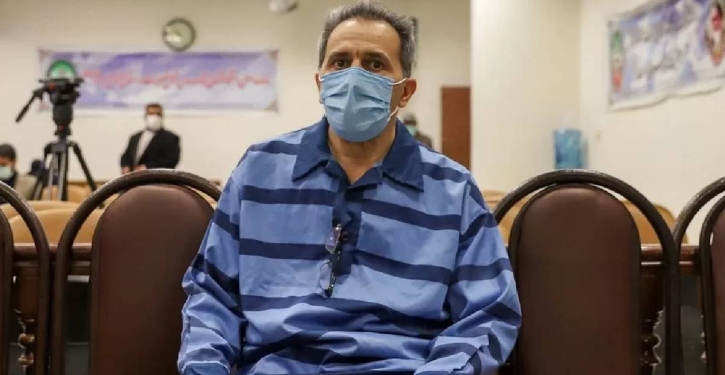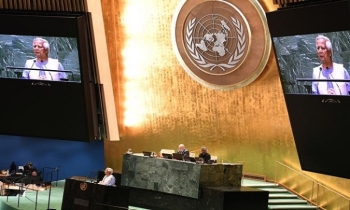Iran sentences German-Iranian dissident to death
BI Desk || BusinessInsider

Photo: Collected
A court in Iran has sentenced German-Iranian dissident Jamshid Sharmahd to death on the charge of “corruption on Earth”, the judiciary has said.
Sharmahd, 67, who lived in the US, is believed to have been kidnapped by Iranian agents in Dubai in 2020 and then forcibly taken to Iran via Oman, reports BBC.
Iran accused him of being the leader of a pro-monarchist terrorist group.
He denied the claim and a human rights group said he faced a grossly unfair trial based on forced “confessions”.
Germany’s Foreign Minister, Annalena Baerbock, condemned the sentence as “absolutely unacceptable”.
“We call on Iran to remedy these shortcomings in the appeals process, correct the verdict accordingly and refrain from the death penalty,” a statement said.
“Imposing the death penalty on Mr Sharmahd will provoke a strong reaction.”
It comes just over a month after Iran executed British-Iranian dual national Alireza Akbari, a former deputy Iranian defence minister who was convicted of spying for the UK.
The Iranian judiciary’s Mizan news agency reported that a Revolutionary Court in Tehran had found Jamshid Sharmahd guilty of “spreading corruption on Earth through planning and leading terror operations”.
It alleged that he was the leader of a terrorist group known as Tondar and that he had “planned 23 terror attacks”, of which “five were successful”, including the 2008 bombing of a mosque in Shiraz in that killed 14 people.
Tondar - which means “thunder” in Persian - is another name of the Kingdom Assembly of Iran (KAI), a little-known US-based opposition group that seeks to restore the monarchy overthrown in the 1979 Islamic Revolution.
According to Amnesty International, Sharmahd created a website to publish statements from the KAI, including claims of explosions inside Iran. He also read out statements in radio and video broadcasts.
However, he denied his involvement in the attacks attributed to him by Iranian authorities, saying he was only a spokesman, and rejected all accusations during his trial, which began earlier this month.
Amnesty International said Sharmahd alleged in two telephone calls with his family last year that he had been tortured and subjected to other ill-treatment in detention, including by being held in prolonged solitary confinement.
He also said he had been denied adequate healthcare, with access to medications required for his Parkinson’s disease delayed routinely.
In August 2020, Iran’s intelligence ministry announced that it had arrested Sharmahd following a “complex operation”, without providing any details.
The previous month, Sharmahd had arrived in the United Arab Emirates on a flight from Germany. He was staying at a hotel in Dubai, awaiting a connecting flight to India, when his family lost contact.
They were able to track his mobile phone’s location, however, and noticed that it had crossed the border with Oman, despite it being closed for travel because of coronavirus-related restrictions, an unnamed source told the UN Human Rights Council’s Working Group on Arbitrary Detention.
The source said the family had received a message from Sharmahd’s phone saying that he was well a day before Iran had published a video in which he appeared blindfolded and confessed to various crimes.
The UN working group said the UAE did not contest the claim that Sharmahd was kidnapped and transferred to Oman by Iranian agents. Oman meanwhile concluded that he infiltrated the country with the help of a group of facilitators and illegally left for Iran by sea “of his own free will”.
In 2019, dissident journalist Ruhollah Zam was reportedly abducted by Revolutionary Guards during a visit to Iraq and forcibly returned to Iran. He was executed the next year after being convicted of “corruption on Earth”.
























